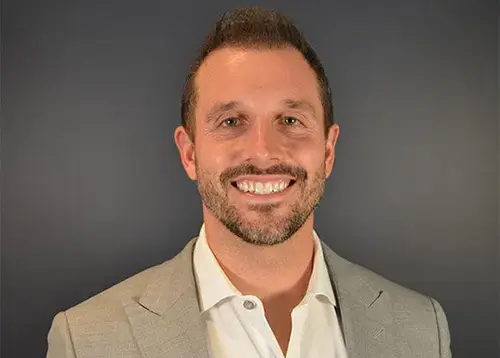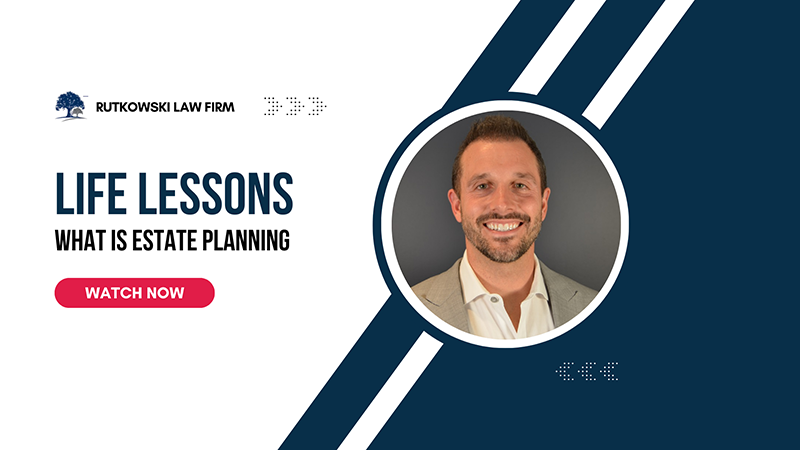Overview
Estate planning isn’t just something for retirees — it’s a vital process that should begin at key life stages to protect you and your loved ones. In this conversation, Michael Rutkowski of Rutkowski Law Firm breaks down when you should start thinking about creating or updating your estate plan, and why it’s important to revisit it as your family and financial situation evolves. Whether you're just starting a family, sending kids to college, or approaching retirement, proactive planning can prevent stress and uncertainty later on.
Key Takeaways:
- Estate planning should start as early as age 18, especially for college students who may need powers of attorney in case of emergencies.
- Two major triggers for estate planning are:
- Having children (first or second child).
- Approaching retirement and preparing finances for the future.
- Estate plans should be reviewed periodically, not necessarily because of legal changes but due to life changes (like children becoming mature enough to serve as power of attorney or trustee).
- Family dynamics differ — some children may be ready for estate responsibilities at 18, while others may need to wait until 25 or 30.
- Financial advisors often prompt estate plan updates during retirement planning to ensure everything aligns with current assets and goals.
Full Transcript
Today, we're going to talk about the phases of when you would be triggered to need an estate plan. There are life scenarios that come into play when you might want to consider that now would be a good time.
Michael, welcome.
Thanks for having me.
It's great having you. It's an interesting question you pose because we find that there are kind of two times during an individual's life when estate planning is very top of mind — not that you shouldn't be doing this when you turn 18.
College Students (Age 18+)
Absolutely, when you’re going away to college, you should have powers of attorney so that your parents can help you while you're away at college. We've had situations where someone at college got into a car accident and the parents couldn't learn what was going on. They had to drive all the way to the college and hospital to figure it out. (That's another whole episode.)
The Two Big Estate Planning Triggers
But those two main phases where 90% of the families come to us are:
- Having kids — your first or second child.
- Some very important decisions and documents need to be made to protect your family.
- Near retirement —
- Getting your ducks in a row, preparing for the future.
- Even if you had an estate plan earlier, this is an ideal time to review and possibly revise it.
Updating Your Estate Plan
If you do an estate plan when you’re younger and have kids, do you then need to revisit it again at retirement?
I hear a lot of estate planners say that you should revisit your estate plan every three to five years. The reality is, in my 20 years of doing this, there hasn't been a legal change that required us to reach out and say, "Hey, you need to update your plan."
More often, life changes trigger updates:
- For example, if we worked with a family when their kids were young, and now their kids are grown (over 18), they may now be ideal candidates to serve as successor trustees or powers of attorney.
- You might no longer need your brother to be your power of attorney if your adult children are responsible and capable.
When Are Children Mature Enough?
Every child is different.
- I have three daughters — all completely different when it comes to responsibility.
- One might be very responsible and a great saver; another might not be quite ready.
- Typically, I see more children ready for these roles around age 25–30, but it really depends on the family and the individual child.
- Parents should decide when they feel their children are mature enough.
Second Major Update: Retirement
The next time to revisit the plan is near retirement:
- You're looking at your 401(k)s.
- You're doing financial planning.
- Financial planners will often suggest ensuring your estate plan is up to date.
It’s a great time to review your trust, powers of attorney, and other documents to make sure everything is aligned with your current life stage.
If you are in either of these life stages, or maybe you're somewhere in between and realize you need to catch up, we are here to help.
Please give us a call — the phone number is below.
We're happy to guide you through creating or updating an estate plan that protects your family now and into the future.
Michael, thank you so much, as always, for your wise words of wisdom. We appreciate you.
My pleasure. We'll see you all next time.



